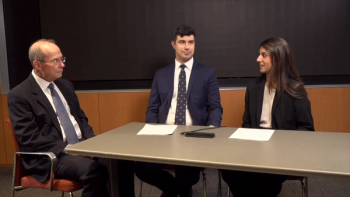
- Ophthalmology Times: September 15, 2020
- Volume 45
- Issue 15
Saving memories: Do anti-VEGF agents contribute to cognitive loss?
Here is a potentially very interesting observation:
According to Subhransu K. Ray, MD, PhD, and colleagues in his retina practice, patients who receive more intravitreal injections with anti-VEGF agents are more likely to experience cognitive decline.
In a cross-sectional study, they compared the results of cognitive testing in 300 patients with neovascular
Previously by Dr. McDonnell:
An interim analysis of the first 116 patients studied revealed a higher prevalence of cognitive impairment in patients who received more than 20 intravitreal injections and the difference was statistically significant.
Patients who received no intravitreal injections had a 27.6% risk of cognitive impairment, those who received 1 to 20 injections had a 31.8% risk and those who received more than 20 injections had a 41.9% risk.
The authors, appropriately in my view, point out that their data do not establish a causal link and need to be confirmed by others. But they do suggest that the optic nerve plays a role.
I think it is premature, based on preliminary findings, to alert our patients to a danger of their AMD treatment contributing to their development of dementia. It is an interesting exercise to consider alternative explanations of the data, including:
> The apparent association is not real, and additional studies by other groups will not confirm the association.
> Injecting anti-VEGF agents into the vitreous cavity results in some fraction of these molecules accessing the optic nerve and/or CSF, reaching the cerebral cortex, impairing the vasculature and causing cognitive dysfunction on the basis of ischemic injury.
> Anti-VEGF agents are toxic to cortical neurons and cause cognitive loss on the basis of neuronal loss.
> The pathogenic mechanism(s) at work in
Related:
> People who are developing cognitive decline are more likely to have family members step in to take care of them and make sure they show up to their doctors’ appointments. Thus, the patients with dementia are missing fewer follow up appointments and therefore are getting more injections.
> Patients with more severe degrees of
> Having a needle inserted into one’s eye is stressful and anxiety-provoking. This stress and anxiety heightens cognitive decline.
> People who are well-insured or wealthy are more able to afford to pay for their doctor visits and retina drugs than are the poor, who therefore elect to have fewer injections. Thus the two groups (few injections and many injections) may not be equivalent with regard to other variables, such as socioeconomic status and diet.
Related:
Perhaps you have some alternative hypotheses of your own. Whatever the truth is, I think it is worth examining in greater detail whether anti-VEGF agents might play a role in cognitive loss.
Ray presented “Cognitive Testing in patients receiving intravitreal anti-vascular endothelial growth factor therapy for wet age-related macular degeneration” at the American Society of Retina Specialists 2020 virtual annual meeting.
Articles in this issue
over 5 years ago
Persistent retinal detachment connected to retinoblastomaover 5 years ago
AI algorithms: a work in progressover 5 years ago
Targeting AMD patient treatment burdenover 5 years ago
Options give 1-2 punch to metastatic uveal melanomaover 5 years ago
Reducing burden on veterans undergoing cataract surgeryover 5 years ago
Surgery during the COVID-19 pandemic: Staying sharpover 5 years ago
Boosting short-term dry eye management in patientsNewsletter
Don’t miss out—get Ophthalmology Times updates on the latest clinical advancements and expert interviews, straight to your inbox.




























